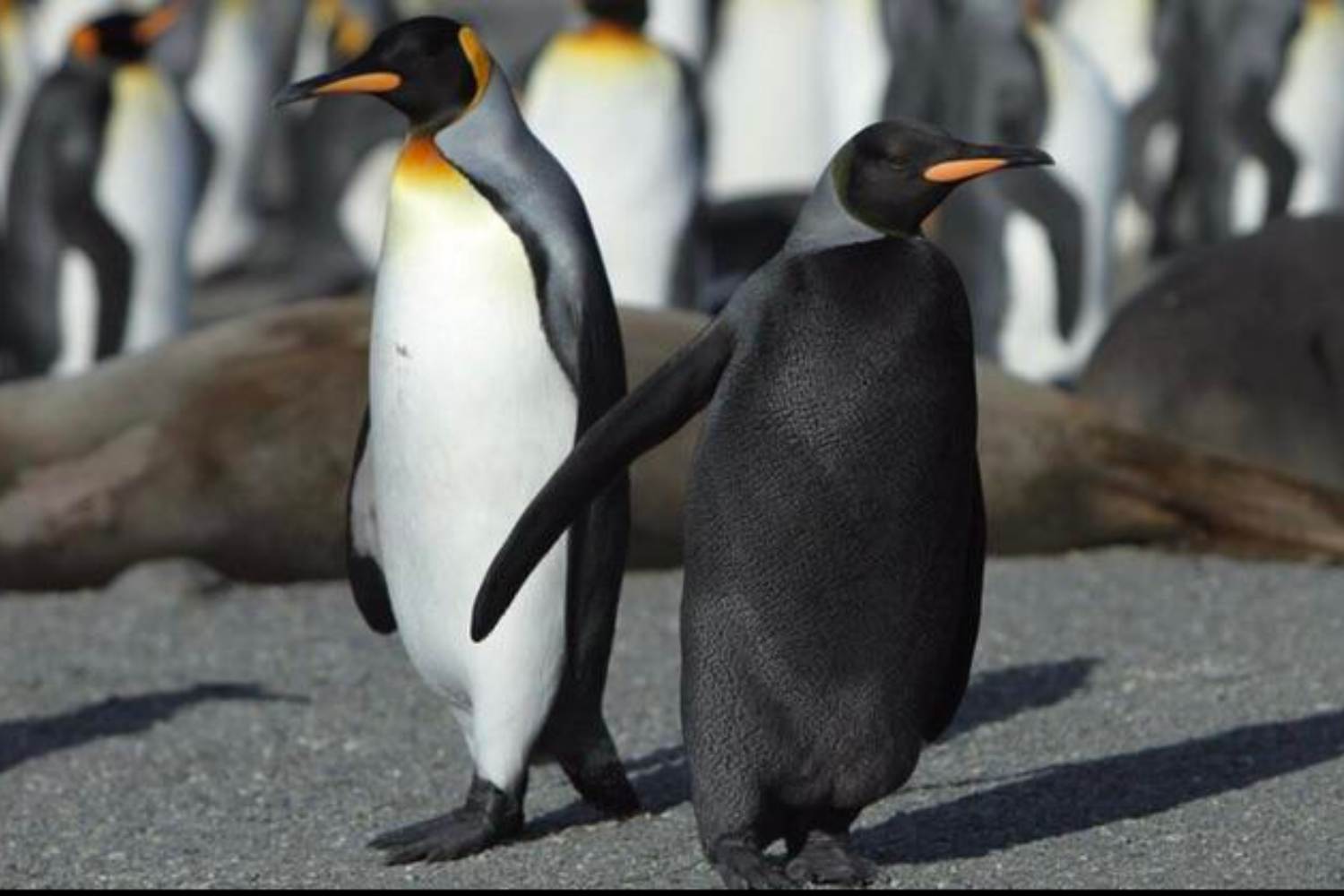Photographer Yves Adams has captured a rare, completely black king penguin off the coast of South Georgia Island: the color is due to a genetic mutation

@yves_adams/Instagram
The animal world never ceases to amaze, and an extraordinary event has captured the attention of wildlife enthusiasts. Belgian photographer Yves Adams has captured a rare sight of a completely black king penguin along the shores of South Georgia Island, in the heart of the Southern Atlantic.
What makes this penguin so unique is its entirely dark coloration, a feature that is extremely rare among king penguins. Normally, these marine birds have a black back, a white belly, and distinctive yellow patches on their heads. However, the penguin photographed by Adams was devoid of any identifying marks and stood out sharply among the other members of the colony.
The reason behind this rarity lies in melanism, a genetic mutation that leads to the overproduction of melanin, the pigment responsible for the dark color of skin, feathers, and fur. This phenomenon is well known in other species, such as melanistic jaguars—commonly referred to as black panthers—but it is extremely rare in penguins.
An intriguing but potentially disadvantageous trait
The sighting occurred during an expedition at St. Andrews Bay, a location renowned for its vast colonies of king penguins. Photographer and wildlife guide Yves Adams was leading a group of enthusiasts when one of the participants spotted the unusual penguin. Realizing the uniqueness of the encounter, Adams quickly acted to take photographs before the penguin blended in with thousands of others.
Although the black plumage may appear fascinating and mysterious, this trait could pose an evolutionary disadvantage. The typical bicolor coloration in penguins serves a protective function: when swimming, the white belly makes them hard to spot by underwater predators, while the dark back helps them blend in with the deep ocean waters. A completely black penguin, on the other hand, would be more visible both from above and below, increasing the likelihood of being detected by orcas, sharks, and other marine predators.
Despite the increased risk of predation, some melanistic penguins manage to survive. According to experts, one possible explanation is that these penguins always move in groups, reducing the chances of being singled out by predators. The protection offered by the group could, therefore, compensate for their chromatic disadvantage, allowing them to live long enough to reach adulthood.
